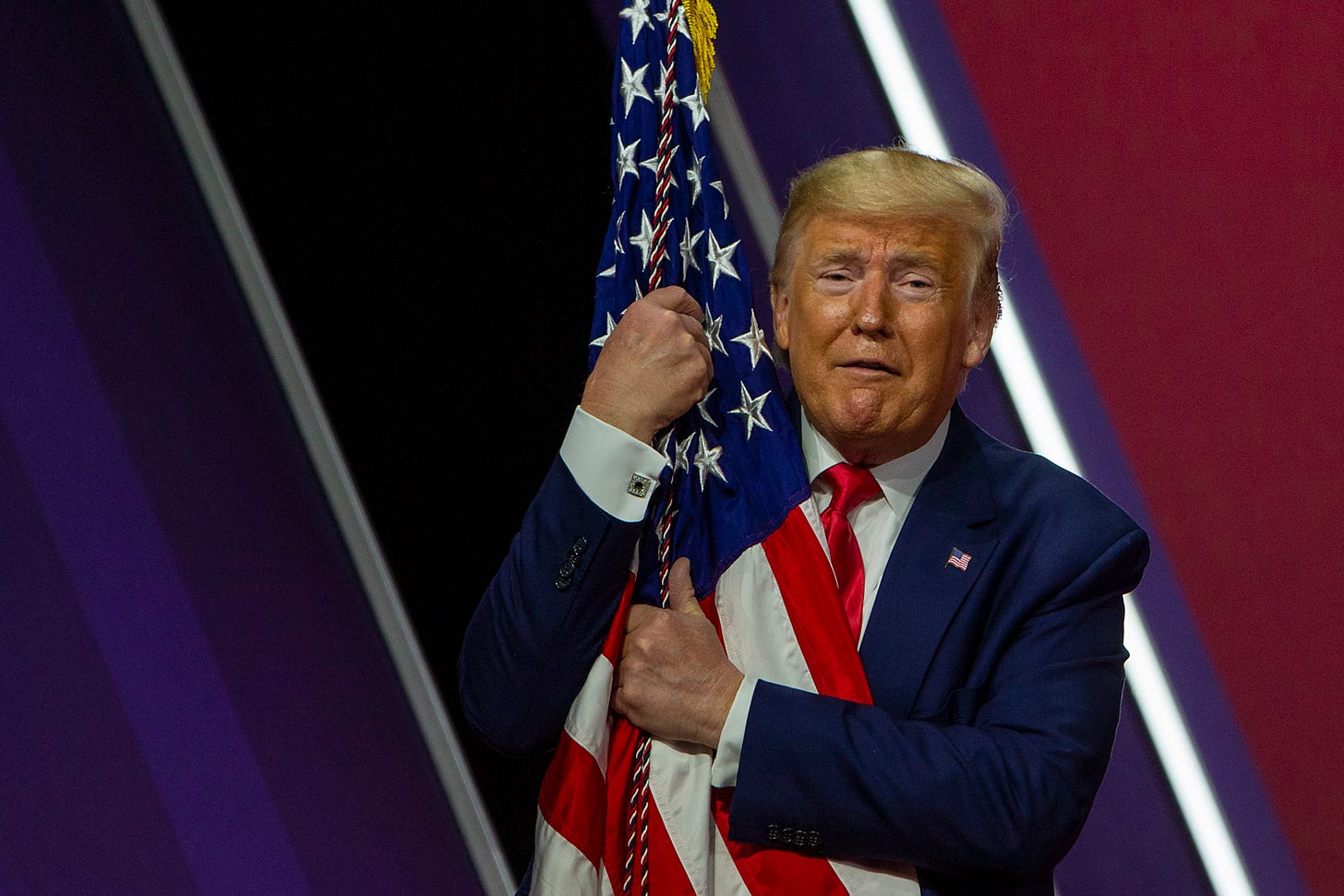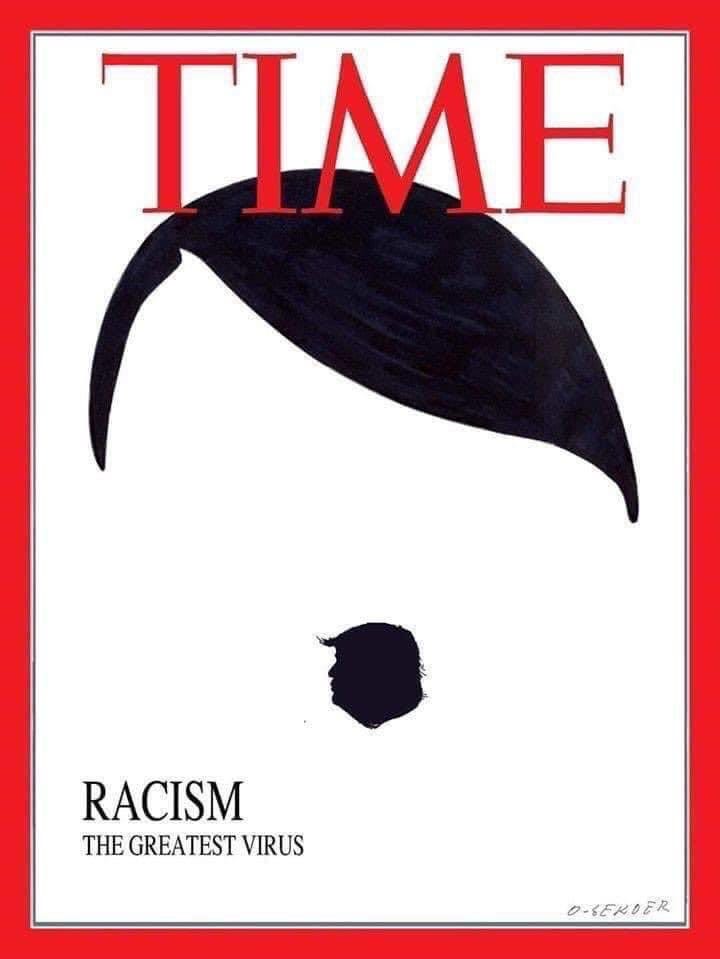
“Every age has its own fascism,” Primo Levi once warned. Levi's all-consuming subject was the vulnerability of contemporary liberal society to radical evil, which makes quite a bit of sense since he was a firsthand witness to and victim of the Nazi concentration camps. Levi had already seen liberal society succumb to the deranged fantasies and false promises of demagogues and dictators once, and it was more than enough for a lifetime. For the rest of his days, Levi remained on guard against any recrudescence of totalitarian ideology.
What’s our excuse?
We moderns are guilty of an opposite phenomenon to this kind of fierce anti-fascism, something you might think of as “phantom fascism.”
Consider the viral image of Hitler's blank visage, with only the elaborate winged coif to indicate it is that of the Nazi leader.

This artwork is courtesy of a Belgian cartoonist, Luc Descheemaeker and it immediately put me in mind of a phrase by the great Swiss historian Jacob Burckhardt, who warned against terribles simplificateurs—terrible simplifiers. When you only know one episode from history, what choice do you have but to confuse everything else with it?
Nearly four years after the inauguration of President Trump, many who oppose him still confuse his authoritarian populism with fascist totalitarianism. This is a mistake, because it is a distinction with a difference.
A more insightful analysis is provided by David Frum in his new book Trumpocalypse.
In a shrewd chapter titled “White Terror,” Frum explicates the new socio-political movement that Trump belongs to but does not quite command. This movement may like to call itself "nationalist," but to Frum's mind, this is a misnomer. “The most fundamental concept in the politics of the new movement is the divide between friend and enemy, but for the new movement, the divide cuts through nations, not between them.” The idea of a civic nationalism that forms the heart of America's political philosophy is alien to this ideology.
Applying the “fascist” label to this new movement doesn’t really help explain it.
It is true that the same fascination with and sanctification of violence embodied in Trump's GOP and kindred movements around the world is an essential element of fascism. But while all fascist movements are violent, not all violent movements are “fascist.”
The partisans of Trump look backward to a largely mythical past, not forward to a utopia of national redemption through war. Whatever superficial resemblances this new movement may possess with the fascism of old, it is considerably weaker than the original because, at base, it is not the vanguard of a revolutionary movement, but a rearguard action being fought by a demographic in its twilight.
"When scientists examine a species that resembles another, but only incompletely or imperfectly, they add the suffix 'oid’,” Frum observes. “A chemical compound that's not quite an alkaline is an 'alkaloid.' In the same way Trump and his ilk are 'fascoid'—near it, but not quite the same, a failure even as fascists."
This gulf between fascism and Trumpism has been laid bare in recent weeks. As Ross Douthat observes, "across his presidency Trump has been more a Wallace than a Nixon, less ‘law and order’ than ‘the law for thee but not for me.’” This insight corresponds to a government that has always been less concerned, as Frum has argued, with persecuting the innocent than protecting the guilty.
As we prepare to enter this election season, there's a wise motto for Trump’s opposition—nota bene: not “the resistance”—to consider:
“Pessimism of the intellect, optimism of the will.”
As I was taught long ago, notice that the author did not say "optimism of the heart."
The will is something else.
It is active and vigilant, concerned not only with intentions but consequences. Excessive pessimism of the intellect can actually mitigate the will. Against an actual fascist regime, extra-constitutional means must be entertained by the opposition. By contrast, within a democratic system grappling with the authoritarian populism we face now requires a firmly constitutional response: It requires a complete and total victory at the ballot box, not a change in the form of government.




